What is NAD+?
NAD+ (nicotinamide adenine dinucleotide) is a coenzyme found in every cell of our body. It plays a crucial role in various biological processes, particularly in energy metabolism and DNA repair. NAD+ is involved in redox reactions, where it shuttles electrons from one molecule to another, facilitating energy production.
Furthermore, NAD+ acts as a key player in the regulation of sirtuins, a family of proteins that influence cellular processes such as gene expression, stress response, and longevity. The balance of NAD+ levels in our cells is essential for maintaining optimal cellular function and overall health.
The Importance of NAD+ for Cellular Health and Aging
NAD+ is indispensable for cellular health and has garnered significant attention in the field of aging research. As we age, the levels of NAD+ in our bodies naturally decline, which can negatively impact cellular metabolism and DNA repair processes. This decline has been associated with various age-related conditions, including neurodegenerative diseases, metabolic disorders, and cardiovascular ailments.
Maintaining optimal levels of NAD+ is crucial for combating these effects and promoting healthy aging. NAD+ is a vital component in the activation of sirtuins, which play a pivotal role in regulating longevity and promoting cellular resilience. By boosting NAD+ levels, we can potentially slow down the aging process and mitigate the age-related decline in cellular function.
Lifestyle Habits That Can Affect Your NAD+ Levels
The Role of Diet in NAD+ Boosting
The role of diet in boosting NAD+ (nicotinamide adenine dinucleotide) levels is significant. NAD+ is a molecule involved in various cellular processes and is essential for energy production and maintaining cellular health. Nutritional approaches, such as eating habits, can influence the NAD+/sirtuin pathway.
The timing, type, and quantity of food we consume can impact the availability of NAD+ within our cells by affecting electron transport in the mitochondria, which are the energy-producing organelles of the cell. A high-fat/sugar diet, for example, can lead to an energy overload, resulting in a reduced ratio of NAD+ to NADH (its reduced form) and decreased NAD+ levels. Similarly, consuming large amounts of calorically rich food (high in lipids and/or carbohydrates) with a low AMP/ATP ratio can also decrease NAD+ or NAD+/NADH levels. These conditions can lead to elevated blood sugar and insulin levels, increased formation of reactive oxygen species (ROS), and oxidative stress and damage.
When large amounts of electrons from sugars enter the mitochondria, they can generate more superoxide, a type of ROS, at certain complexes involved in electron transport. However, efficient electron flow and prevention of electron leaks (superoxide formation) can be achieved through regular ATP consumption, such as engaging in moderate physical activity or work. This increases the AMP/ATP ratio and enhances NAD+ availability.
The relationship between metabolism and NAD+ is further supported by findings that show decreased NAD+ levels in tissues with high-fat diets and obesity. Studies have demonstrated lower expression of sirtuins (a class of proteins dependent on NAD+) and NAMPT (nicotinamide phosphoribosyltransferase, an enzyme involved in NAD+ synthesis) in obese individuals. However, moderate weight loss and supplementation with NAD+ precursors or intermediates have been shown to increase sirtuin and NAMPT expression while decreasing total PARP (poly(ADP-ribose) polymerase) activity, providing protection against obesity, improving glucose tolerance, hepatic insulin sensitivity, and lipid metabolism.
The Effects of Exercise on NAD+ Levels
Exercise and sports activities have several positive effects on health, including improved motor skills, bone health, cardiovascular fitness, and mental well-being. One aspect influenced by exercise is the level of a molecule called NAD+ (nicotinamide adenine dinucleotide).
Exercise increases the amount of NAD+ in the body by stimulating the expression of an enzyme called NAMPT in skeletal muscles. This effect has been observed in both animal and human studies. NAD+ plays a crucial role in generating ATP, the main energy source for exercise and sports activities. It also affects the balance of free radicals and oxidative damage in mitochondria, the energy-producing structures in cells.
Exercise triggers the activation of AMPK, a protein kinase that senses energy demand in cells. AMPK, in turn, modulates the availability of NAD+ in the body. Both exercise and caloric restriction, such as intermittent fasting, can increase NAD+ levels by inducing NAMPT expression through AMPK activation. This increased availability of NAD+ benefits various cellular processes, including those regulated by sirtuins and PARPs.
Recent studies have shown that different exercise training methods can reverse the age-dependent decline in NAD+ salvage capacity in human skeletal muscle. Both aerobic and resistance exercise training has been found to increase NAMPT levels and NAD+ levels in young and older individuals.
NAD+ plays a crucial role in ATP production and mitochondrial biogenesis in muscle cells during exercise. Furthermore, exercise increases the systemic levels of NAD+, leading to health benefits at the organismal level. The NAD+/NADH ratio, which is improved during exercise, activates various enzymes and cellular processes associated with NAD+ consumption.
Interestingly, supplementation with NAD+ precursors, such as NMN has mixed effects on exercise performance. While some studies suggest potential benefits, others indicate a decrease in exercise performance. The complex metabolic and redox properties of NAD+ and its precursors likely contribute to these varying outcomes.
Overall, maintaining a high NAD+ to NAD+/NADH ratio is important for cellular and organismal health, and exercise and sports activity can contribute to achieving and preserving this balance.
The Role of Circadian Rhythms, Sleeping Habits on NAD+ Levels
Sleep disorders can increase the risk of chronic diseases such as obesity, depression, diabetes, and cardiometabolic diseases, which are associated with higher mortality and morbidity rates. On the other hand, maintaining a regular sleep pattern is linked to promoting health and longevity.
The disruption of circadian rhythms, which are the natural internal clocks that regulate our sleep-wake cycle, can have negative consequences for our health. NAD+ levels and the activity of a protein called sirtuin play a role in maintaining a healthy circadian rhythm. NAD+ levels fluctuate in a 24-hour cycle and can be influenced by factors like feeding and sleeping patterns.
The central internal clock is located in the hypothalamic suprachiasmatic nucleus, and it coordinates circadian rhythms through intracellular proteins known as "circadian clocks." These proteins are regulated by a feedback loop involving transcriptional activators and repressors. The core circadian regulator CLOCK, which is a histone acetyltransferase, is balanced by the NAD+-dependent histone deacetylase SIRT1.
As we age, the activity of NAMPT declines, leading to a decrease in NAD+ availability. This decline in NAD+ can disrupt the circadian rhythm, causing changes in its amplitude, period, and phase. Disrupted circadian rhythms have been observed in various diseases such as cardiovascular diseases, diabetes, cancer, and accelerated aging. Conversely, aligning our innate circadian period with our daily routines can have positive effects on health.
The Impact of Stress on NAD+ Levels
Chronic stress can have detrimental effects on NAD+ levels. Prolonged stress activates various pathways that deplete NAD+ resources, leading to compromised cellular function and increased susceptibility to age-related diseases. Managing stress through relaxation techniques, meditation, and regular exercise can help maintain optimal NAD+ levels and promote overall well-being.
Maintain NAD+ Levels and Feel Younger, Healthier, and More Energized
NMN is a precursor of NAD+, which means that it can be converted into NAD+ by the body. NMN is considered to be one of the most effective ways to boost NAD+ levels. If you are looking for ways to boost your NAD+ levels and improve your overall health, there are a number of things you can do. Exercise, fasting, eating a healthy diet, and taking NAD+ supplements are all effective ways to increase NAD+ levels.
Reference:


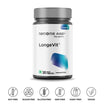
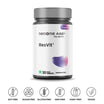
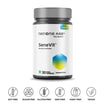
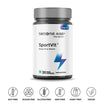
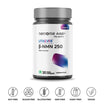
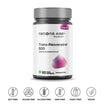
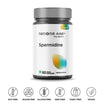
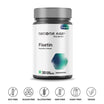
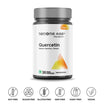
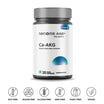
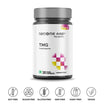
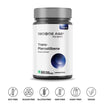


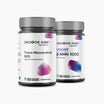
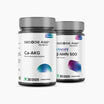

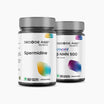
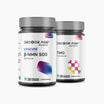
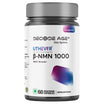
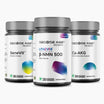
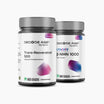
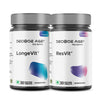
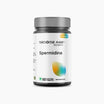

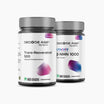


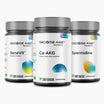
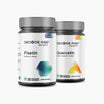
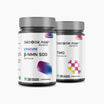
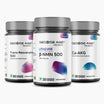

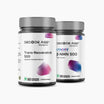



Leave a comment
This site is protected by reCAPTCHA and the Google Privacy Policy and Terms of Service apply.